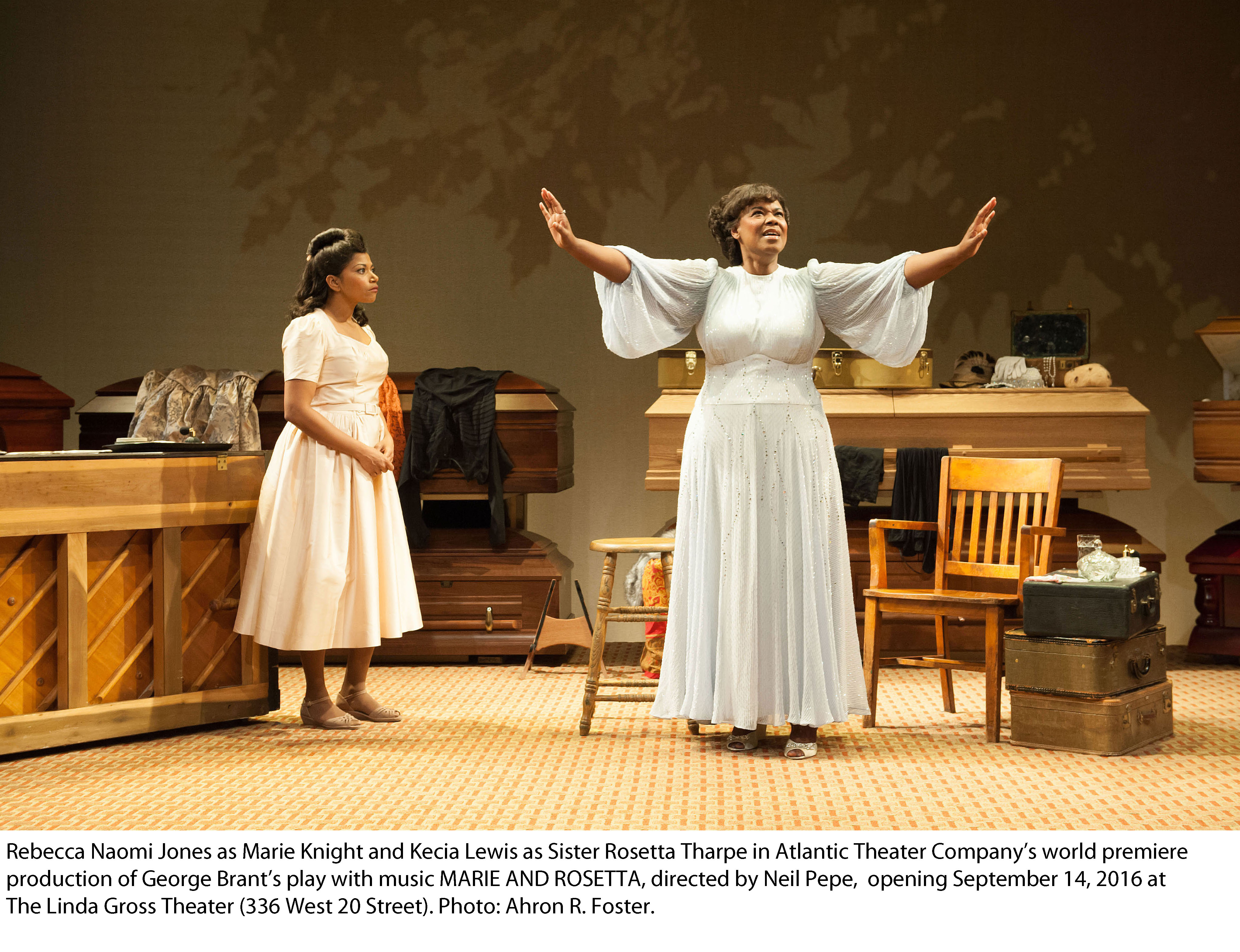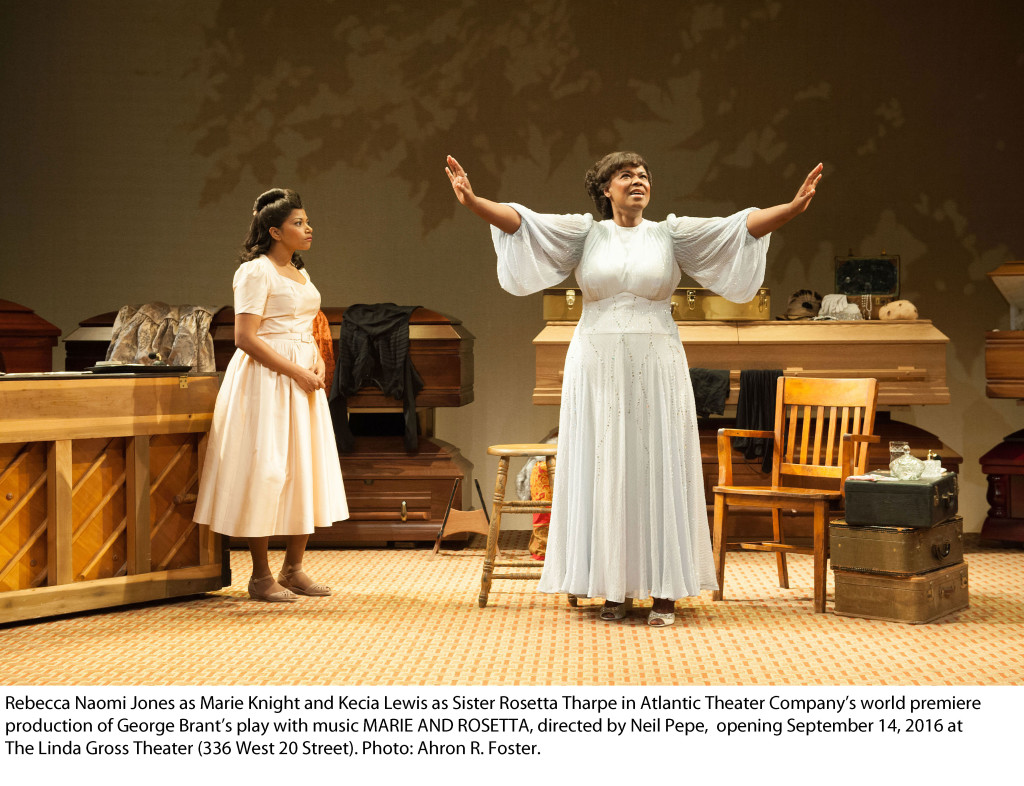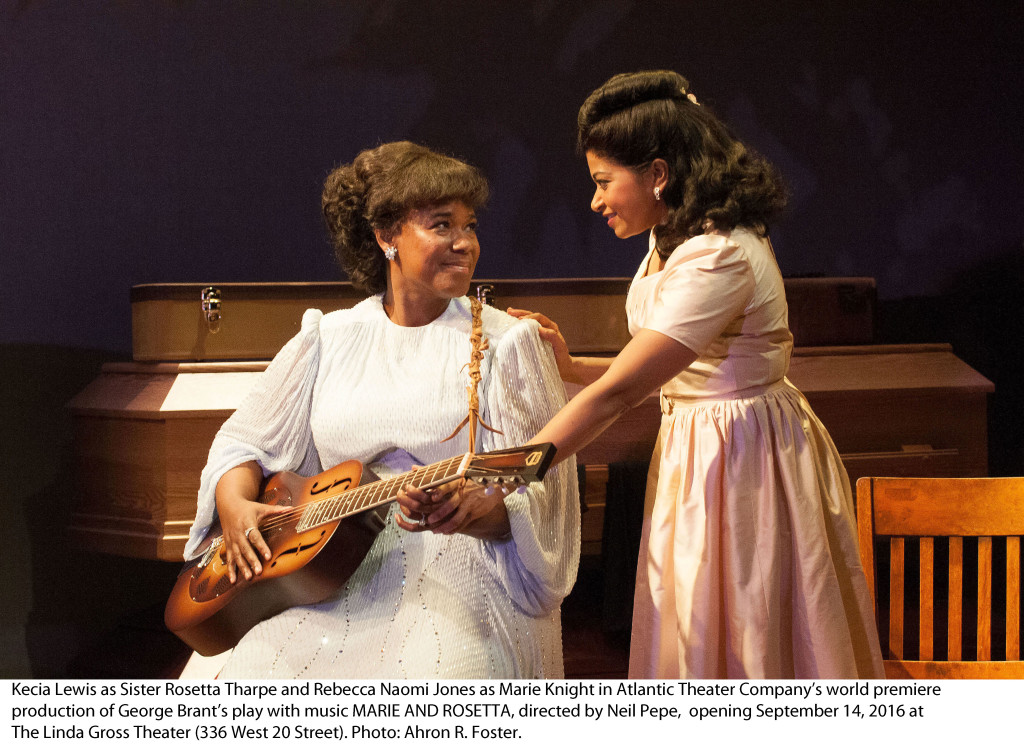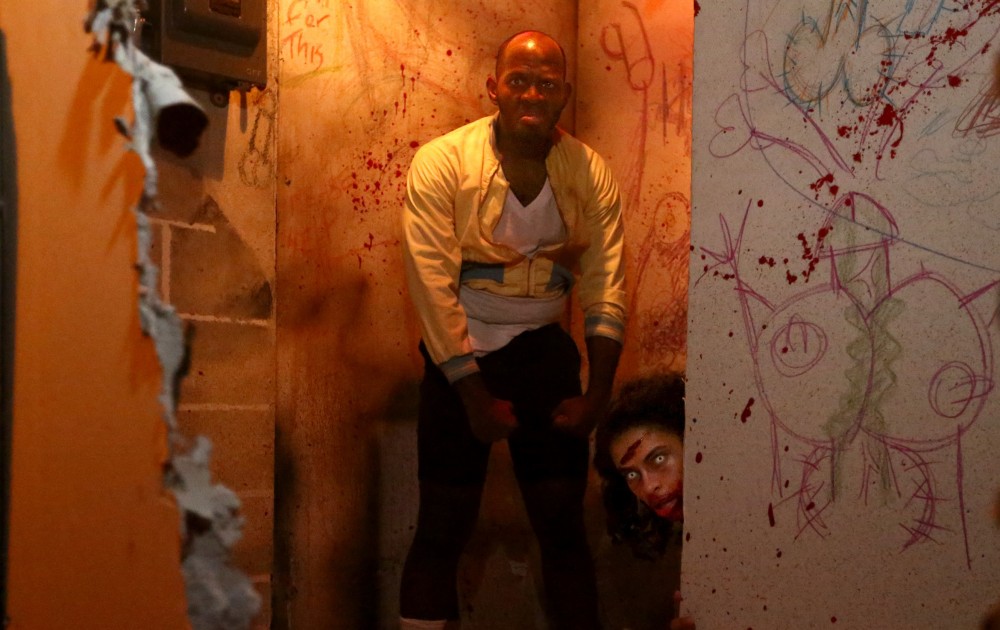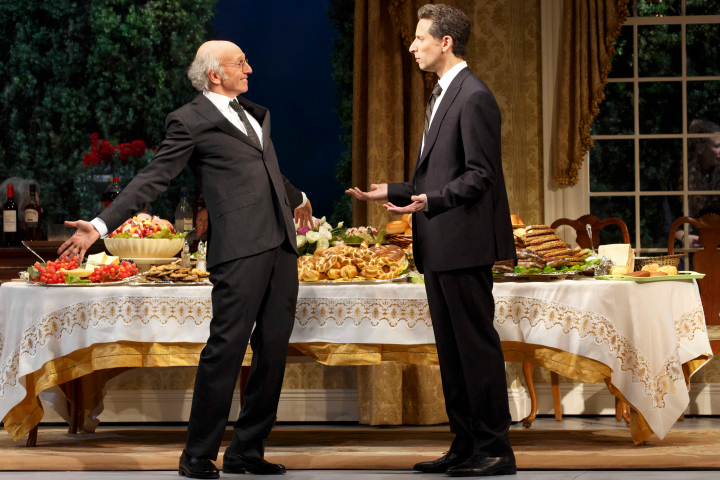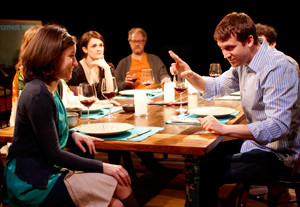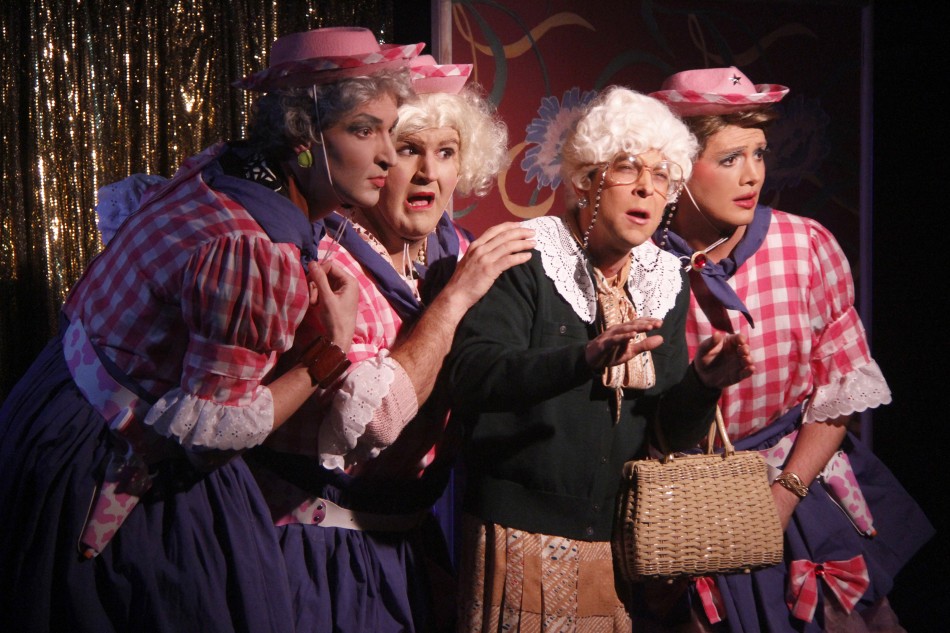by Michael Bracken
It may take place in a funeral parlor, but you won’t find anything more full of life than Marie and Rosetta, at the Atlantic Theater Company’s Linda Gross Theater. Kecia Lewis is a dynamo as the legendary “Sister” Rosetta Tharpe, a gospel singer who jazzed up spirituals and sang them in nightclubs, gaining notoriety in the process, since conservative churchgoers on the gospel circuit found her secularizing religious songs scandalous.
With Rosetta among the caskets is Marie Knight (Rebecca Naomi Jones), a talented young singer whom Rosetta has recruited to sing with her, at least in part to resuscitate her tarnished reputation. The funeral parlor is the best they can do in Mississippi in 1946. Complete with a piano, it’s their studio and hotel. And they’re about to begin their first rehearsal.
Marie and Rosetta, directed with easygoing grace by Neil Pepe, calls itself a play with music, but music with a play might be more appropriate. Written by George Brant, the dialogue is revealing and often very funny. And Rosetta ’s observations about being a black performer touring the South are telling in their matter-of-factness. “Why you think we got a white bus driver?” she asks Marie. “Who else gonna buy us food?” But it’s the music that gives Marie and Rosetta wings. These women can sing.
And at least one of them doesn’t hold anything back. In her early thirties, Lewis’s Rosetta is an established star with an exuberant personality that colors all her music. Her generous sense of humor informs both her singing and her talking, and she exudes warmth just by breathing. She’s comfortable with herself and with her God.
She has a take no prisoners attitude and a big, rich sound to back it up. The central tenet of her faith in Jesus is his forgiveness. A true but hardly rigid believer, she enlarges upon his exhortation that we should forgive our brethren not seven times, but seventy times seven. She attributes the same math to his forgiving us (and, in particular, her). And when she says something she shouldn’t, she immediately looks to heaven and uses one of her forgiveness chits.
At 23 and new to life on the road, Marie has a lot to learn. Her voice is excellent but she’s initially cautious. Not quite as innocent as she seems – she’s married with two children – she has doubts about Rosetta’s liberal take on music and religion. Marie is old school, at least about faith and morals. Initially uptight, she instinctively resists when Rosetta tries to get her to move her hips.
But little by little Marie loosens up. Rosetta helps her by singing “This Train” and talking about how she started performing as a young girl. Marie sings “Were You There When They Crucified My Lord?” and Rosetta tells her she’s got a bit of Mahalia in her, being more “high church” than Rosetta. Rosetta often makes references to “Saint” Mahalia Jackson, the famous gospel singer who stayed true to gospel. There’s a bit of a rivalry between Mahalia and Rosetta, at least in Rosetta’s mind, and she thinks Mahalia would have grabbed Marie if she didn’t get to her first.
Rosetta argues that singing is joy that gives glory to God, whether it’s gospel or swing. After doing one solo each, the women take on a number of powerful duets. Marie plays piano and Rosetta, whose music influenced rock’n’roll icons like Elvis and Jimi Hendrix, plays guitar.
Lewis recognizes Rosetta as the dream role it is, full of humor and kindness and breathtaking vocals, and she pours her heart into every fiber of the singer’s being. As the more reticent Marie, Jones does less of a star turn, but it’s fun to watch her evolve from hothouse flower into radiant lily of the field.
Through Sunday, October 2. Atlantic Theater Company’s Linda Gross Theater (336 West 20th Street). 90 minutes with no intermission. www.atlantictheater.org
Photos: Ahron R. Foster


